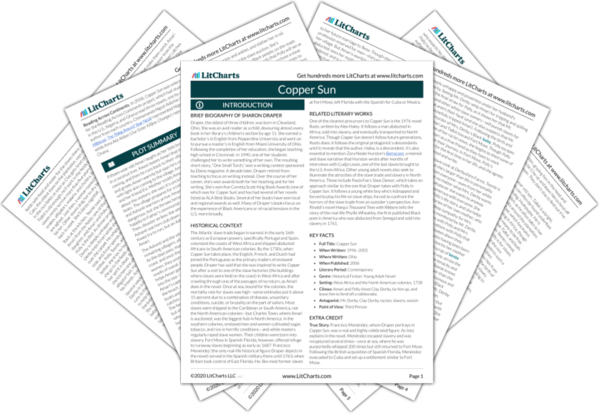Mr. Derby draws on the false idea that Black women are more promiscuous than white women—and he uses this to try to justify raping them, while also insisting that rape is a good way to control them. In essence, he’s trying to blame Black slave women at large for the sexual violence they experience, while also acknowledging that rape is dehumanizing and wears away at victims’ spirits. And in referring to rape as “special favors at night” rather than calling it what it is, Mr. Derby downplays a horrible act of violence. It’s also important to remember Clay’s earlier threats to Polly in the context of Mr. Derby’s opinion that white women should be treated well. Clearly, he’s only referring to wealthy white women—not to poor indentured servants like Polly.


